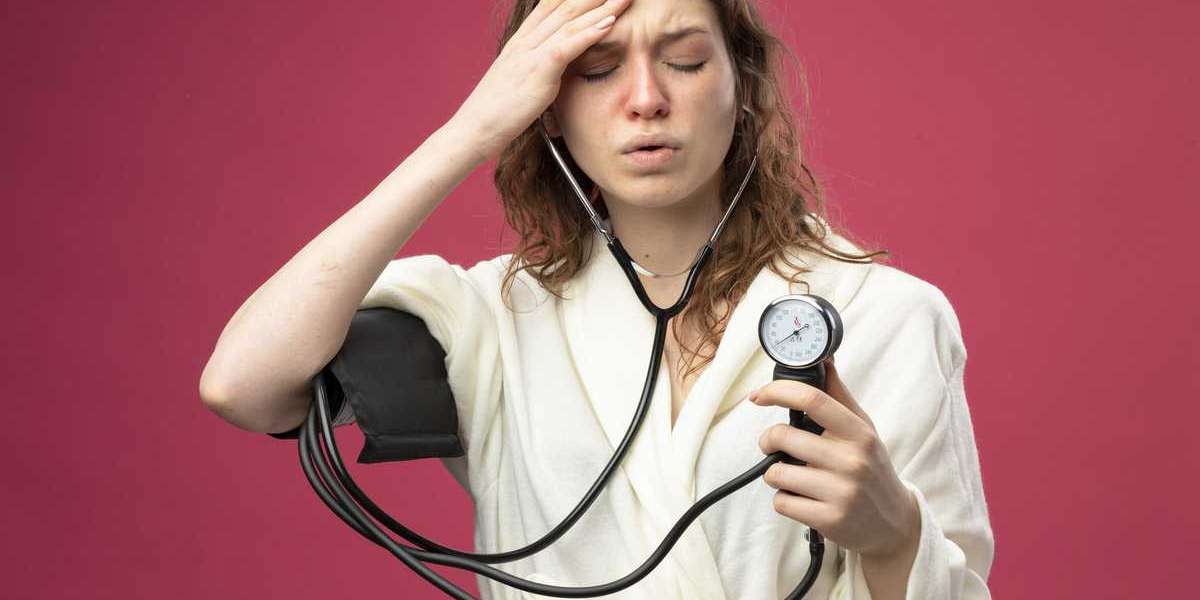Hypertension, commonly referred to as high blood pressure, is a prevalent and serious health condition that affects millions of people worldwide. It is often called the "silent killer" because it typically doesn't cause noticeable symptoms until significant damage has been done. Left untreated, hypertension can lead to a range of complications, including heart disease, stroke, kidney failure, and even premature death. However, with the right strategies, high blood pressure can be managed effectively, reducing the risk of these severe outcomes and improving overall health. This article will explore proven methods for controlling hypertension, focusing on lifestyle changes, medications, and ongoing management.
Understanding Hypertension
Blood pressure is the force exerted by circulating blood against the walls of blood vessels. It is measured using two values: systolic pressure (the pressure when the heart beats) and diastolic pressure (the pressure when the heart rests between beats). Hypertension is diagnosed when blood pressure consistently exceeds 130/80 mmHg, a threshold established by major health organizations such as the American Heart Association (AHA).
Hypertension is divided into two types:
Primary (Essential) Hypertension:
This is the most common form and occurs without a clear, identifiable cause. It tends to develop gradually over many years and is influenced by factors such as genetics, age, and lifestyle.
Secondary Hypertension:
This type is caused by an underlying condition, such as kidney disease, hormonal disorders, or certain medications. Secondary hypertension often appears suddenly and is more severe.
While "https://sarayclinic.com/pharmacy/hypertension/">hypertension is a complex condition, there are several strategies that have been proven effective in lowering blood pressure and improving heart health.
1. Adopting a Heart-Healthy Diet
Diet plays a crucial role in managing high blood pressure. Consuming a balanced, nutritious diet can help prevent and even reverse hypertension. The DASH diet (Dietary Approaches to Stop Hypertension) is a well-researched eating plan designed specifically for lowering blood pressure. Key components of the DASH diet include:
Fruits and Vegetables:
High in potassium, magnesium, and fiber, these foods help lower blood pressure by balancing sodium levels in the body.
Whole Grains:
Whole grains such as oats, brown rice, and quinoa provide fiber, which helps improve overall heart health.
Lean Proteins:
Incorporating lean sources of protein such as fish, poultry, beans, and nuts can help regulate blood pressure without adding excessive saturated fats.
Low-Fat Dairy Products:
Dairy products rich in calcium, such as yogurt and milk, can support healthy blood pressure levels.
Reducing Sodium Intake:
Excessive sodium (salt) consumption is a major contributor to high blood pressure. The DASH diet recommends limiting sodium intake to no more than 2,300 mg per day (ideally closer to 1,500 mg) for those with hypertension.
In addition to these guidelines, increasing intake of foods rich in potassium, such as bananas, spinach, and potatoes, is particularly helpful in lowering blood pressure by counteracting the effects of sodium.
2. Regular Physical Activity
Exercise is a cornerstone in the management of hypertension. Regular physical activity helps the heart become more efficient at pumping blood, which can lower blood pressure over time. The American Heart Association recommends aiming for at least 150 minutes of moderate aerobic exercise or 75 minutes of vigorous exercise per week. This could include activities like walking, cycling, swimming, or jogging.
Exercise helps by:
Improving heart and lung function
Enhancing blood circulation
Reducing excess weight, which can be a major contributor to high blood pressure
Lowering stress, which also impacts blood pressure
Even moderate exercise, such as brisk walking or gardening, can help lower blood pressure. It's important to note that starting slowly and gradually increasing exercise intensity is key, especially for those new to physical activity.
3. Weight Management
Carrying excess weight puts added stress on the heart and increases the risk of developing hypertension. Studies show that even a modest reduction in weight—around 5 to 10% of your body weight—can have a significant impact on lowering blood pressure.
To achieve and maintain a healthy weight, focus on:
Eating a balanced diet that supports weight loss (such as the DASH diet)
Exercising regularly
Avoiding crash diets or extreme calorie restrictions, which are unsustainable
While losing weight can take time, the benefits of achieving and maintaining a healthy weight are significant in controlling hypertension.
4. Limiting Alcohol and Caffeine Intake
Excessive alcohol consumption can elevate blood pressure, so it is important to limit intake. For men, the AHA recommends no more than two drinks per day, and for women, no more than one drink per day. Drinking large amounts of alcohol can raise blood pressure by increasing the levels of certain hormones and chemicals in the body.
Caffeine, while not as directly linked to hypertension as alcohol, can temporarily increase blood pressure in some people. Individuals who are sensitive to caffeine may experience a more noticeable effect. It's recommended to monitor how your body responds to caffeine and consider reducing consumption if you notice an impact on your blood pressure.
5. Managing Stress
Chronic stress is a well-known contributor to high blood pressure. When the body is under stress, it produces higher levels of hormones such as adrenaline and cortisol, which can temporarily increase heart rate and blood pressure. Long-term stress can lead to unhealthy behaviors like poor diet choices, smoking, and excessive drinking, which further elevate blood pressure.
Effective stress management techniques include:
Mindfulness and meditation:
These practices can lower stress levels and help regulate blood pressure.
Yoga and deep breathing exercises:
These promote relaxation and reduce the body's stress response.
Adequate sleep:
Poor sleep is associated with higher blood pressure. Establishing a regular sleep routine can help manage stress and support heart health.
6. Medications for Hypertension
In some cases, lifestyle changes alone are not enough to control high blood pressure, and medications may be needed. There are several classes of drugs available to treat hypertension, and your healthcare provider will determine which type is most appropriate based on your specific condition and overall health. Some of the most commonly prescribed antihypertensive medications include:
Diuretics:
These drugs help the body eliminate excess sodium and water, which can lower blood pressure.
ACE inhibitors:
These relax blood vessels by inhibiting the enzyme that narrows them, reducing blood pressure.
Calcium channel blockers:
These prevent calcium from entering heart and blood vessel cells, leading to lower blood pressure.
Beta-blockers:
These reduce the heart rate and the force of heart contractions, lowering blood pressure.
Angiotensin II receptor blockers (ARBs):
These block the effects of a hormone that constricts blood vessels.
It’s important to take medications as prescribed and to have regular follow-up appointments with your healthcare provider to monitor their effectiveness and make adjustments if needed.
7. Regular Monitoring and Medical Checkups
Once hypertension is diagnosed, it is crucial to have regular blood pressure checks to monitor progress and adjust treatment as necessary. Keeping track of your blood pressure at home using a digital monitor can also be helpful. If your blood pressure remains elevated despite lifestyle changes and medications, additional treatments or a combination of drugs may be required.
Summary
Managing hypertension is a lifelong commitment, but with the right combination of lifestyle changes, medications, and regular medical care, you can effectively control high blood pressure and reduce the risk of serious health complications. By adopting a heart-healthy diet, engaging in regular physical activity, managing stress, and taking prescribed medications, individuals can take significant steps toward maintaining healthy blood pressure levels. With consistent care and monitoring, it is possible to lead a full and healthy life despite having hypertension"../">.







